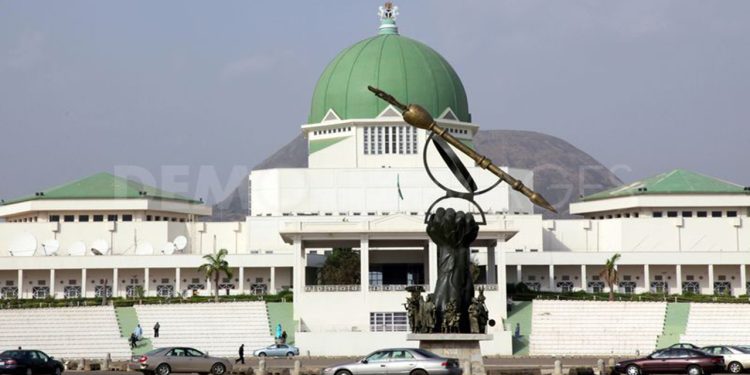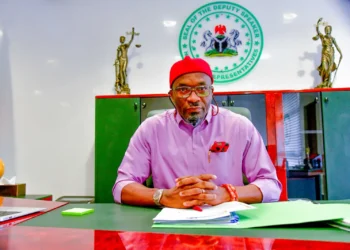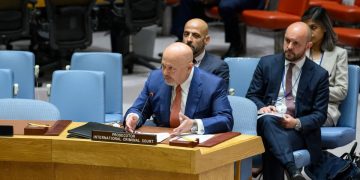Nigeria’s House of Representatives has summoned Andrew Adejo, the Permanent Secretary of the Federal Ministry of Education, to appear before its Subcommittee on Students’ Loans and Higher Education, as the lawmakers zero in on the controversial Act.
This development comes amid growing concern over the absence of the Permanent Secretary despite an invitation extended three weeks ago. Instead, the Permanent Secretary sent the Director of Legal Services from the Ministry to represent him.
However, this representative faced challenges in responding to certain inquiries during a meeting with the law makers. The Permanent Secretary is expected to appear on Tuesday, August 15th 2023.
The committee seeks feedback on the progress made by the Ministry and the Presidential Committee on Student Loans in implementing the Student Loan Act. This is amidst tremendous criticism and calls for reform from both parents and students.
The introduction of Nigeria’s new Students Loan Act has stirred a wave of criticism and sparked conversations across the nation. While the Act aims to provide financial assistance to students pursuing higher education, concerns have arisen regarding its provisions, eligibility criteria, and potential impact on students and their families. As stakeholders weigh in on the Act’s implications, calls for reform and improvements are growing louder.
Quick Background: The new Students Loan Act was enacted with the goal of expanding access to higher education for Nigerian students, particularly those who face financial constraints. The Act seeks to address the challenges of affordability and promote academic advancement, aligning with the government’s commitment to education as a driver of national development.
Failings of the Act: However, the Act has faced criticism for its limitations and perceived barriers to access. Critics argue that the income eligibility threshold, set at N500,000, may exclude a significant portion of students who genuinely need financial assistance. The Act’s provisions have also been scrutinized for lacking sufficient flexibility and failing to address the diverse financial circumstances of Nigerian families.
Prominent Voices Weigh In: Economist Dr. Pat Utomi emphasized the importance of striking a balance between accessibility and fiscal responsibility, stating, “We must ensure that while making higher education attainable, we do not burden our economy with unsustainable debt.” Activist Amina Ahmed highlighted the need for comprehensive consultation, asserting, “The voices of students and parents must be central in shaping an effective Students Loan Act.”
Notable Media Coverage and Tabloid Reports: Nigerian tabloids have been actively reporting on the Students Loan Act, highlighting both its potential benefits and shortcomings. “New Students Loan Act: A Step Forward or a Missed Opportunity?” asks ThisDay, while Vanguard poses the question, “Is the N500,000 Income Limit Realistic for Student Loans?”
Reactions from Students and Parents: Students and parents alike have voiced their concerns about the Act’s implications. Many argue that the income limit fails to accurately reflect the cost of living and education-related expenses. Some students express fears that the Act may discourage higher education aspirations due to the limited support offered.
Potential Remedies and Improvements: To address the concerns raised by stakeholders, experts and advocates are suggesting several potential remedies. One proposed solution involves revisiting the income threshold to ensure it accurately reflects the economic realities faced by Nigerian families. Additionally, the Act’s provisions could be modified to offer greater flexibility in terms of repayment plans and interest rates, catering to the varying financial capacities of borrowers.
Actions by the Executive and National Assembly: The executive and legislative branches of the Nigerian government are actively engaging with the criticism and seeking avenues for improvement. President Bola Tinubu recently acknowledged the concerns and committed to a review of the Act’s provisions. The National Assembly has also initiated discussions on potential amendments to address the Act’s limitations and make it more inclusive.
Moving Forward: As the country navigates the complexities of reforming the Students Loan Act, stakeholders anticipate a comprehensive review process that addresses the Act’s shortcomings and aligns with the nation’s educational goals. The collaborative efforts of the executive, legislative, and civil society sectors are expected to shape a more inclusive and impactful higher education financing framework.
The debate surrounding Nigeria’s new Students Loan Act underscores the nation’s commitment to enhancing access to education for all. While criticism has highlighted shortcomings, the shared determination to make higher education attainable for every aspiring Nigerian remains unwavering.
As the government and stakeholders work together to refine the Act, the nation’s youth and future stand to benefit from an improved framework that reflects the aspirations of a progressive society.












